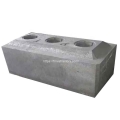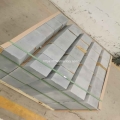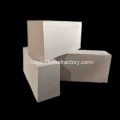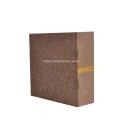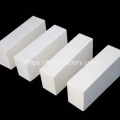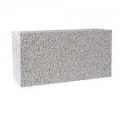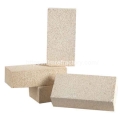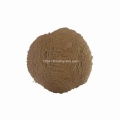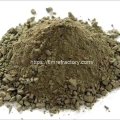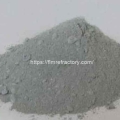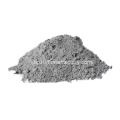- Performance. Innovation. Worldwide. Your trustworthy Refractories Manufacturing Partner--Fireramo
- +86 175 3769 7777
Contact
Contact us on WhatsApp
High Quality Refractory Bricks
Insulation Bricks for Sale
Monolithic Refractory
Difference between refractory bricks and insulation bricks
Common refractory materials include products such as refractory bricks and insulation bricks. According to the different quality of the bricks, we also often refer to refractory bricks as heavy bricks and insulation bricks as light bricks. We find that many customers can not well distinguish the difference between refractory bricks and Insulation bricks Today, we will introduce the differences and distinctions between refractory bricks and Insulation bricks from the aspects of material composition, performance and use.
Refractory bricks and insulation bricks all belong to a kind of refractory material, only its indicators and uses are different. Simply put, refractory bricks are in direct contact with the flame, mainly refractory role, mostly used in kiln lining parts. And thermal bricks are thermal insulation and reduce heat loss, mainly used in the kiln insulation layer, to play the effect of thermal insulation.

Refractory bricks and thermal insulation brick material composition: what is the difference?
Refractory bricks: Refractory bricks are usually made of kaolin, quartz sand and other refractory materials that are sintered at high temperatures. These materials give refractory bricks excellent heat resistance and corrosion resistance, enabling them to withstand extreme thermal environments.
Insulation bricks: Insulation bricks are generally made from lightweight materials such as foam concrete and perlite. These materials are characterized by low density and good thermal insulation properties, which can effectively reduce heat transfer.
Performance differences between refractory bricks and insulation bricks
Refractory bricks
High Temperature Resistance: Refractory bricks are a type of building material with a high degree of heat resistance, they usually have excellent heat resistance and can maintain structural stability at very high temperatures for long periods of time.
Good refractoriness: Refractory bricks can come into direct contact with flames, they have excellent refractoriness properties and can resist chemical attack and thermal stress.
Structural stability: sintered at high temperatures, refractory bricks have good structural stability and mechanical strength. They are able to withstand heavy pressure and mechanical shocks and are suitable for a variety of industrial environments.
High quality refractory bricks for sale
Insulation bricks
Thermal insulation performance: Thermal insulation bricks have a low thermal conductivity, which can effectively isolate the external temperature and heat conduction in the internal space. It can maintain the stability of indoor temperature and reduce energy consumption.
Lightweight materials: insulation bricks are usually made of lightweight materials with low density. This makes them easier to use in building construction and reduces the load on the structure.
Energy saving and environmental protection: due to the thermal insulation properties of thermal bricks, buildings require less heating or cooling capacity during the hot and cold seasons, thus reducing energy consumption and environmental impact.
Convenient to construct: Insulation blocks are easy to cut and install and are suitable for a wide range of building shapes and structural needs. They can be used for exterior wall insulation, roof insulation, floor insulation and many other parts of the building to provide good insulation.
- Vermiculite Brick

- Silica Insulation Brick

- Perlite Brick

- JM Mullite Insulation Brick
- High Alumina Insulation Brick

- Lightweight Clay Insulation Brick

Different applications of refractory bricks and insulation bricks
Refractory bricks: Refractory bricks are mainly used in locations where they need to withstand high temperature environments and chemical attack, and they are commonly used in the lining of various industrial kilns. They are widely used in the internal structure of hearths, furnace walls, chimneys and other high-temperature equipment. The high temperature resistance and corrosion resistance of refractory bricks make them ideal for handling high temperature substances and chemicals.
Insulation bricks: Insulation bricks are mainly used in the field of building insulation. They provide thermal insulation in indoor and outdoor walls, roofs and other areas. The low thermal conductivity and good thermal insulation properties of thermal bricks enable them to effectively reduce heat loss and improve the energy efficiency of buildings.
There are significant differences between refractory bricks and thermal bricks in terms of material composition, uses and properties. Refractory bricks are suitable for environments that need to withstand high temperatures and chemical attack, while insulation bricks are mainly used in the field of building insulation. Refractory bricks are resistant to heat, abrasion and corrosion, while insulating bricks are known for their excellent thermal insulation properties.
Specializing in refractory materials for over 20 years, we provide professional refractory solutions for the global high temperature industry.
Related Posts:
- Causes and solutions to cracking of castables after baking
- Enhancing the Medium Temperature Strength of Refractory Castables
- Ways to ensure the accuracy of refractory brick acceptance results
- Acceptance inspection after cement kiln construction
- Three Common Ways of Damage to the Sliding Nozzle for Ladles
Theme By Fireramo
